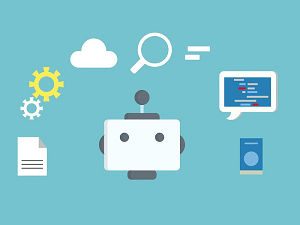AI is everywhere right now, from tools that write content to systems that analyze data and speed up workflows. The possibilities are exciting, but while everyone is talking about what AI can do, not enough are talking about how to use it safely, responsibly, and in a way that protects the data and people behind it.
If your organization is just starting to explore AI tools, it is essential to align those efforts with your existing Cybersecurity Strategy to ensure consistent protection across systems and users.
With Great Power Comes Great Responsibility
AI is transforming how we work. It helps teams save time, make better decisions, and unlock new creativity. But with any powerful technology, there is also a responsibility to use it wisely.
If your business is using AI tools like ChatGPT, Copilot, or Gemini, here are a few questions worth asking:
-
Do we have clear AI policies or guidelines?
-
Do employees know what data can and cannot be shared?
-
Do we understand where that information goes, how long it is kept, and who has access to it?
If you are unsure, now is the time to talk with your IT department or Managed IT Services Provider.
The Hidden Risks of Everyday AI Use
What goes into AI tools does not always stay private. Data entered into an AI system may be stored, logged, or used to improve the model’s performance. That can be a serious risk if employees share sensitive information such as client records, contracts, or financial details.
For businesses in regulated industries like healthcare, finance, or law, this is not just a privacy issue; it can also create compliance risks under HIPAA, GDPR, or state privacy laws like CCPA and CPA. To maintain compliance, organizations should integrate AI oversight into their broader Compliance and Risk Management Programs.
Why Every Organization Needs an AI Policy
An AI policy is no longer optional. It should define approved AI tools, what data can be shared, when human review is needed, and who is accountable for oversight.
Even if an AI vendor promises strong security, your business is still responsible for how data is used and protected. Business owners are accountable for ensuring AI practices comply with privacy laws, company policies, and contractual obligations.
For many organizations, this is also an opportunity to enhance employee Security Awareness Training programs — helping staff recognize when it’s appropriate to use AI and how to do so securely.
Securing Innovation with AI Proxy Services
Some companies now use AI proxy services to monitor and filter traffic so data does not leave the organization. It is a smart way to stay innovative while protecting sensitive information.
Even if you have not officially rolled out AI, employees may already be using it, often called “shadow AI.” Some may even turn to AI tools to get around IT restrictions or access information they normally would not. It is rarely malicious, but it can expose sensitive data or bypass internal controls. Clear communication, training, and policies help prevent this.
Responsible AI Use Aligns with Business Success
Creating safe AI practices is not about slowing progress. It is about protecting your clients, employees, and reputation by ensuring training and governance align with broader company policies and standards.
AI is an incredible tool, but it is up to all of us to make sure it is used securely, ethically, and within compliance boundaries.
Partner With Progression In Technology LLC
At Progression In Technology LLC, we help businesses develop and implement AI governance frameworks designed to protect data, support compliance efforts, and encourage innovation.
If your organization is ready to establish or strengthen its AI policies, contact our team today to get started.
Contact Us | Learn More About Our Compliance Services









